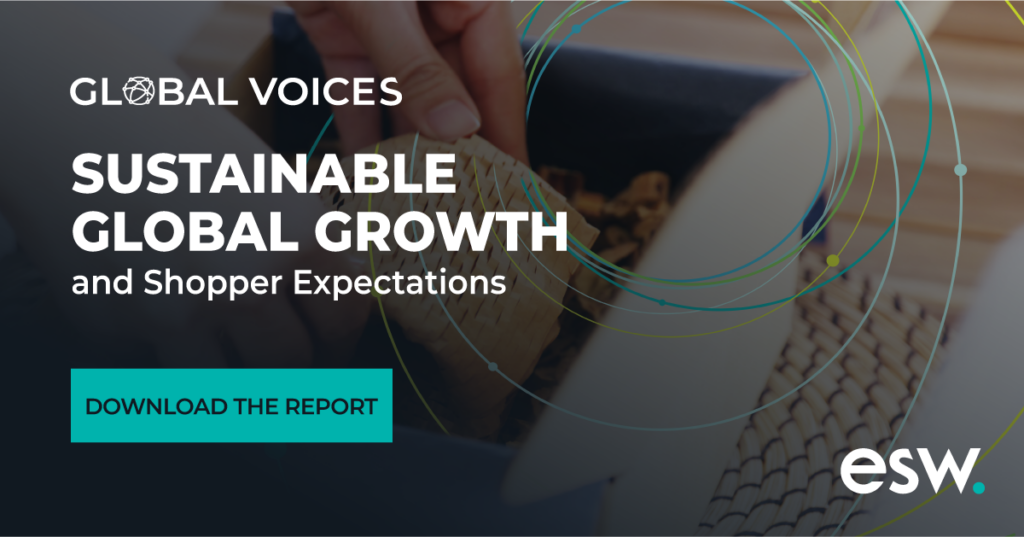Global ecommerce sales are expected to increase to $5.4 trillion by 2026, making up 27% of all retail sales. And as the number of ecommerce consumers continues to grow, new markets and segments are emerging along with it.
According to Morgan Stanley, parts of Southeast Asia and Latin America could experience 17% to 20% ecommerce growth over the next five years. Ecommerce sales are also rapidly growing across verticals like beauty, apparel, grocery and electronics.
But keeping up with consumer behaviour around the world can be overwhelming for even the biggest ecommerce brands. Likewise, technology trends are rapidly changing the customer experience, and many legacy brands are struggling to keep up.
So what should ecommerce brands know about consumer behaviour in 2023? In this article, we will take a look at some of the top trends shaping the industry today.
1. Alternative Payment Methods Are Trending
In the face of stubborn inflation, it is no wonder that alternative payment methods are increasingly popular with online consumers. A 2022 global consumer report found that 16% of all online shoppers have used buy now, pay later (BNPL) at checkout. Likewise, a PYMNTS survey revealed that almost 60% of consumers say they prefer BNPL options over credit cards.
Gen Z and Millennials are particularly drawn to the ease, convenience and flexibility of alternative payment options. Younger generations may have seen their parents struggle with credit card debt during the 2008 recession, so they appreciate the transparency of BNPL payments.
According to the PYMNTS survey, BNPL users like that the payment method is easier to manage than credit card payments. There is a simple approval process, and most BNPL options have no interest if the payments are made on time.
In addition to BNPL options, global consumers are embracing digital wallets and one-click checkout options like PayPal and Apple Pay. Brands that offer the payment methods in online stores that consumers prefer are more likely to win and retain customers.
2. Sustainability Matters More Than Ever
Sustainability has been gaining momentum across the ecommerce industry for many years, and in 2023, it is more popular than ever. The vast majority of global consumers say sustainability plays an important role in their purchasing decisions and ecommerce behaviour.
When it comes to meeting consumer expectations, brands must do more than make environmental, social and governance (ESG)-related claims as part of their marketing message. They must make claims that are honest and transparent. Online retailers should avoid greenwashing, or making misleading claims about the environmental merit of a product or service. Watchdog and consumer groups investigate brand claims and will expose companies that greenwash.

3. Convenience Is King
Today’s ecommerce consumers have more choices about where and how to make online purchases than ever before. And as their options increase, they also have higher standards when it comes to the brands they support. Brands that want to compete for their loyalty must understand that convenience is king in 2023.
One survey found that two-thirds of respondents say convenience and ease of purchase are two of their highest priorities when making a purchase decision. How are brands meeting this demand? First, by offering fast, free shipping — which is the top reason people shop online in 2023. They are also offering convenient, flexible and omnichannel delivery and return options like buy online, pick up in store and buy online, return to store.
4. Pricing Transparency Is Paramount

Inflation and economic uncertainty continue to have a massive impact on global consumer behaviour. So, it is unsurprising to learn that three in four shoppers in the U.S. and U.K. are most concerned about price in 2023. Similarly, a study by PwC found that 96% of consumers plan to adopt “cost-saving behaviours” over the next six months, and 69% of consumers have “changed non-essential spending” over the past six months.
Still, more than 40% of ecommerce consumers say they are planning to shop more online in the next six months. This goes to show that ecommerce will continue to grow even in the face of economic uncertainty. But pricing and price transparency are paramount, and even brands doing everything else right when it comes to the customer experience will take a hit if they do not offer competitive pricing.
Pricing transparency is particularly important for brands and ecommerce businesses selling cross-border. Building trust with international consumers is a key component of creating loyal customers. Brands and retailers with DTC ecommerce channels that clearly display all applicable taxes, duties, shipping charges and fees help shoppers feel confident in their purchase.
5. VR and AR Can Help Streamline the Purchase Experience
Virtual reality (VR) and augmented reality (AR) are more than just buzzwords in 2023. According to a report from Storyblok, consumers around the world have growing expectations when it comes to the role of AR and VR in the ecommerce experience.
American ecommerce consumers have especially high hopes for technology: Nearly 60% of U.S. consumers say a mixed reality buying experience would encourage them to make a purchase. Ecommerce brands in the U.S. are picking up on the trend by offering VR and AR tools like try-on solutions, interactive user manuals, 3D product videos and more.
6. Data Privacy Concerns for Ecommerce Consumers Are Growing
As people around the world spend more and more of their time online and ecommerce consumer shopping increases, cybersecurity and data privacy concerns are growing. Countries across the globe are responding to this concern by adopting more stringent data privacy laws, and only the brands that adhere to these laws will continue to thrive.
A 2023 PwC study found that 32% of consumers say they are concerned about personal data privacy when interacting with consumer companies and retailers. Almost half of those surveyed say they do not share more personal information than necessary, and 32% say they opt out of emails and other communications.
Brands can reduce this friction and gain consumer trust by being transparent and innovative when it comes to data privacy and cybersecurity practices.
ESW Supports You
Ecommerce consumer behaviour is always changing, and in 2023, trends can seem more unpredictable than ever. Global brands face an ever greater challenge as they navigate consumer trends across multiple markets.
Fortunately, no matter where you do business, ESW can help you deliver the seamless, secure and intuitive experience your customers expect. At ESW, we understand the latest consumer demands and help brands achieve fast success in new markets across the globe.
ESW Fluency helps DTC cross-border brands create a hyper-localised feel for global trading. Contact ESW today to learn how Fluency Express can help your brand offer an optimised shopping experience in multiple markets in as few as six weeks.
